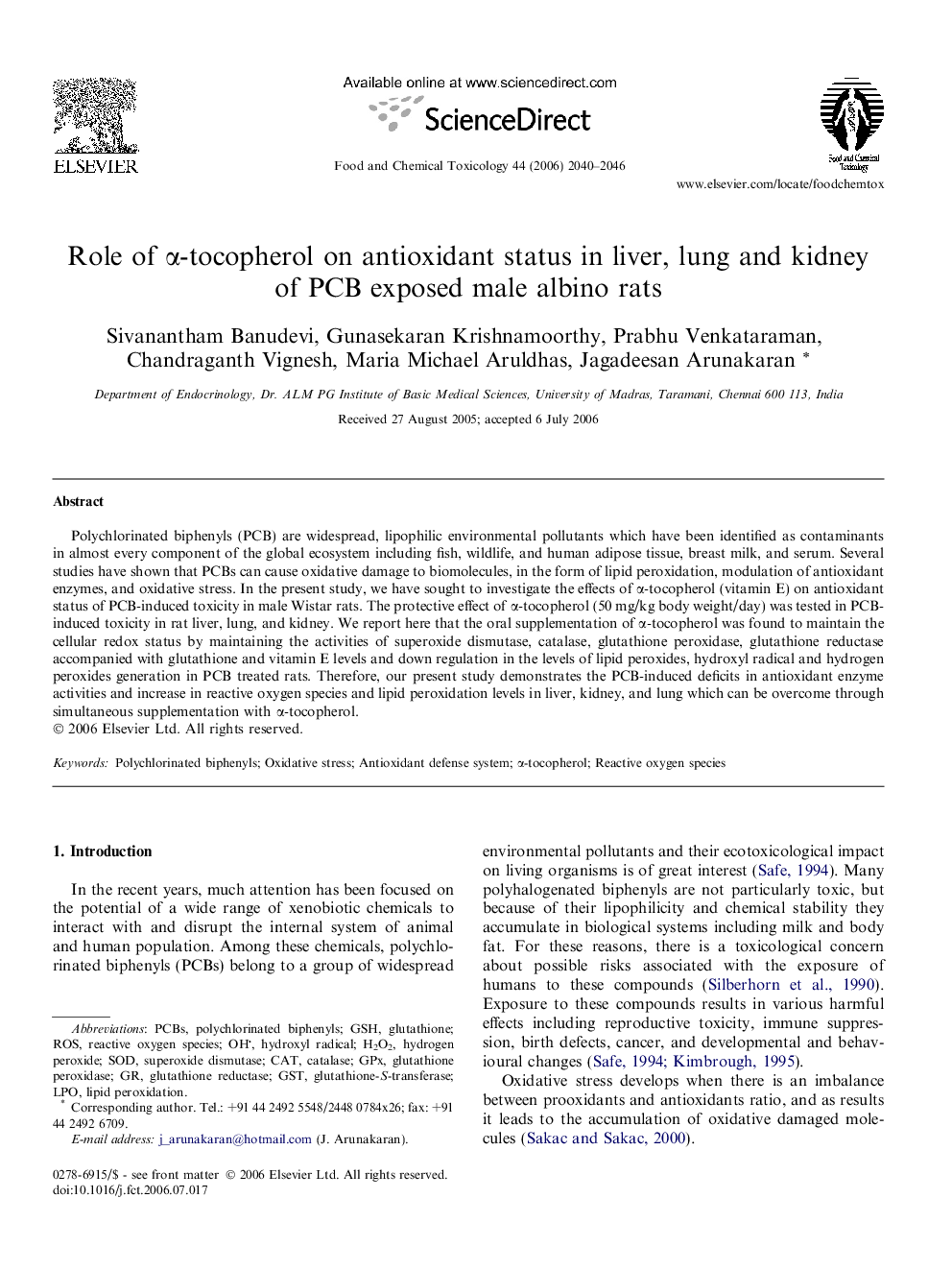| Article ID | Journal | Published Year | Pages | File Type |
|---|---|---|---|---|
| 2587739 | Food and Chemical Toxicology | 2006 | 7 Pages |
Polychlorinated biphenyls (PCB) are widespread, lipophilic environmental pollutants which have been identified as contaminants in almost every component of the global ecosystem including fish, wildlife, and human adipose tissue, breast milk, and serum. Several studies have shown that PCBs can cause oxidative damage to biomolecules, in the form of lipid peroxidation, modulation of antioxidant enzymes, and oxidative stress. In the present study, we have sought to investigate the effects of α-tocopherol (vitamin E) on antioxidant status of PCB-induced toxicity in male Wistar rats. The protective effect of α-tocopherol (50 mg/kg body weight/day) was tested in PCB-induced toxicity in rat liver, lung, and kidney. We report here that the oral supplementation of α-tocopherol was found to maintain the cellular redox status by maintaining the activities of superoxide dismutase, catalase, glutathione peroxidase, glutathione reductase accompanied with glutathione and vitamin E levels and down regulation in the levels of lipid peroxides, hydroxyl radical and hydrogen peroxides generation in PCB treated rats. Therefore, our present study demonstrates the PCB-induced deficits in antioxidant enzyme activities and increase in reactive oxygen species and lipid peroxidation levels in liver, kidney, and lung which can be overcome through simultaneous supplementation with α-tocopherol.
